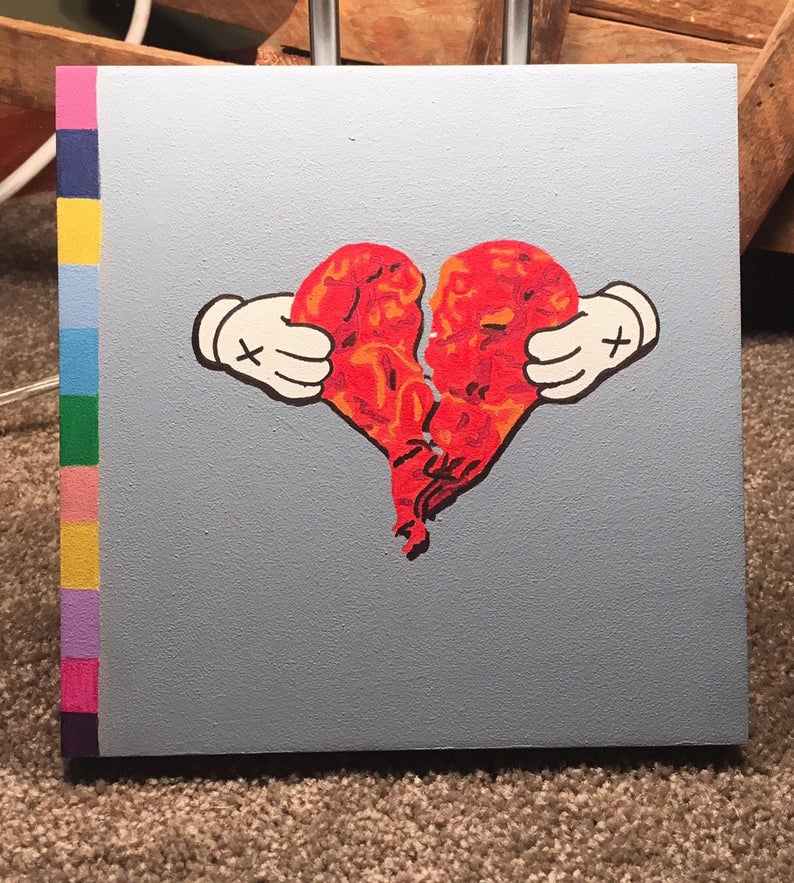

Killing the pain by throwing himself into his work, West is promising another record soon, although it's unclear whether it will be an Amnesiac-style companion to what is essentially his equivalent of Radiohead's Kid A, a slate-cleaning exercise that allows for creative, and in this case personal, rebirth. However, 'Streetlight' is a heartfelt ballad, so magnificently Eighties it might as well be blaring from Don Johnson's Ferrari as he heads out on another lonely moonlight drive around Miami. According to 'Love Lockdown', female companionship is not conducive to megastardom either ('I can't keep myself/ And still keep you too'). 'You're like the girl from Misery,' he chides over 'Robocop"s terrific jackhammer rhythm (in reality you'd probably need to down his bodyguard before breaking his legs, Kathy Bates-style). So it might be 2008 but women are still frightening. It suits the mood: if the modern world has turned you into a consumer automaton, then an acoustic guitar just won't cut it.ĭisappointingly, West's take on his troubles is less sophisticated and the complaints are standard male celebrity griping. In fact, he hardly rhymes at all, half-speaking, half-singing, his wobbly vocal endlessly warped by the Auto-Tune. He's a pop star now, and, thankfully, an iconoclastic one. Predictably, the hardcore are baffled (sample internet response: 'Has Kanye gone crazy?') but West stopped appealing to them after he toured with U2. The frosty synths of 'Coldest Winter' are pure Detroit techno, while 'Say You Will' is R Kelly does Kraftwerk, a slow jam built around a simple radioactive pulse. The 808 and vocal pitch-shifting are also features of house, techno and drum'n'bass, all absorbed by West's radical electro-pop he is finishing the work begun by producers Timbaland and Pharrell Williams in drawing on areas of black music thought sissy by rap's still macho core audience.

In the world of hip hop, introspection rarely lasts more than one track, although this is barely a rap album at all, even though each song is constructed with the genre's classic drum machine, the Roland TR-808, as well as its latest gizmo, the Antares Auto-Tune, popularised by backing singer turned robot-voiced star, T-Pain. West's restraint is admirable for one so used to getting what he wants: some of his peers would have nipped to Africa and blown a few grand on an orphan. 'My friend showed me pictures of his kids/ All I could show him was pictures of my cribs,' he confesses during swooning opener 'Welcome to Heartbreak'. Ten of the 11 tracks are inspired by the break-up, one by his mum, and the tone is that of a globe-trotting millionaire picking at the gold bars of his luxurious cage. Hence this album-long bout of emotional stock taking. The twin wake-up calls were the sudden death of his mother, Donda, following plastic surgery last year, and the demise of his engagement to designer Alexis Phifer in April. West has also clocked the moral of Easton Ellis's tale: there's more to life than buying stuff, even cool Japanese stuff you can picture on your blog (something West does himself with alarming frequency). West announced Bateman's influence on his fourth album, 808s and Heartbreak, earlier this year, sidestepping feminist outrage by citing the way his role model 'was all about labels', rather than admiring his creative approach to butchering women. Great suits, delusions of grandeur: the über-yuppie from Brett Easton Ellis's Eighties satire American Psycho is an ideal touchstone for someone whose self-regard and addiction to shopping had grown so out of hand that even other rappers might have thought him a bit flash.

I t was inevitable that Kanye West would eventually namecheck Patrick Bateman.


 0 kommentar(er)
0 kommentar(er)
